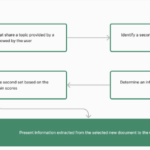When you think about pursuing a career in social media marketing jobs, you probably imagine spending your days on Facebook or Twitter. While that may be part of the job, there’s much more to it. Social media marketing roles come with major responsibilities – like developing strategies, creating content, analyzing data, and managing advertising campaigns. Whether you want to be a social media manager, content creator, strategist, analyst, influencer marketing specialist, or advertising expert, there are opportunities to match your interests and skills. As you explore the different positions, think about which role aligns best with your strengths. Are you an analytical thinker who loves crunching numbers? Or do you pride yourself on your creativity and writing skills? Getting clear on the day-to-day work will help you pursue the right social media marketing career.
Overview of Social Media Marketing Jobs
Social media marketing jobs is a fast-growing field with many exciting career opportunities. As a social media marketer, you’ll help companies promote their brand and connect with customers on platforms like Facebook, Instagram, and Twitter. The specific duties will depend on your role, but may include:
- Developing and implementing social media strategies to achieve key business goals. This could entail conducting market research, identifying target audiences, and optimizing content and campaigns.
- Creating and curating engaging content (like posts, photos, and videos) tailored for different social networks. You’ll keep tabs on the latest trends and news to develop content ideas.
- Monitoring social media channels and engaging with your audience by responding to comments and messages in a timely manner. You’ll build relationships and keep the conversation going.
- Analyzing metrics and data to gain insights into how your social media efforts are performing and making recommendations to improve results. You may prepare regular reports on metrics like impressions, reach, engagement, and conversions.
- Staying up-to-date with changes in social media platforms and tools. The field is constantly evolving, so continuous learning is a must.
The specific job titles in social media marketing include:
- Social Media Manager: Develops and oversees the social media strategy. Manages a team of specialists.
- Social Media Coordinator: Creates and schedules content, engages with the audience, and supports the manager.
- Social Media Strategist: Devises social media strategies tailored to business goals. Conducts research and provides recommendations.
- Social Media Analyst: Tracks and analyzes performance data to optimize social media campaigns.
- Influencer Marketing Specialist: Identifies and partners with influencers to promote the brand. Manages influencer campaigns and relationships.
- Social Media Advertising Specialist: Plans and executes paid social media advertising campaigns. Optimizes ads to drive results within budget.
A career as a social media marketer can be very rewarding. If you’re a strong communicator, stay on top of trends, and want to help brands build meaningful connections, it may be the perfect field for you. With hard work and persistence, you can land an entry-level role and work your way up to a leadership position. The opportunities in this fast-growing industry are plentiful.
Key Responsibilities of a Social Media Manager
As a social media manager, your core responsibility is developing and executing a social media strategy that aligns with your company’s business goals. This involves a lot of tasks, but here are some of the key ones:
Managing your company’s social media profiles and posting engaging content on platforms like Facebook, Instagram, Twitter, LinkedIn, and Pinterest. You’ll create posts, share updates, upload photos and videos, and engage with your followers by replying to their comments and messages.
Staying on top of trends in social media and making sure your content and strategies are up-to-date. Social media changes fast, so you have to keep learning and adapting to new features, algorithms, tools, and best practices.
Analyzing metrics and data to see how your social media campaigns are performing and making adjustments to improve results. You’ll look at things like follower growth, engagement rates, traffic, and conversions to see what’s working and not working.
Developing a content calendar and planning your posting schedules to keep your social media channels active and engaged. You want to post frequently enough to stay top of mind with your audience but not so often that you annoy them! A good rule of thumb is 2-5 posts per day for most platforms.
Collaborating with other teams like marketing, PR, content creation, and customer service. Social media doesn’t operate in a silo, so you’ll work with different groups to make sure messaging and strategies are cohesive across channels.
Overseeing any paid social media advertising campaigns to drive brand awareness, increase traffic, and boost conversions. You’ll set budgets, choose target audiences, design ads, and analyze performance.
Building relationships with influencers who can help expand your reach. You’ll reach out to influencers, negotiate partnerships or sponsorships, provide them with content and products, and track the results of any influencer campaigns.
Monitoring your social media channels regularly and responding quickly to any customer questions, complaints, or issues. Great social media managers provide good customer service and engagement.
Staying up-to-date with changes in social media platforms’ algorithms and features so you can optimize your content and strategies. The social media landscape is always changing, so continuous learning is required.
Creating Content as a Social Media Coordinator
As a social media coordinator, one of your main responsibilities will be generating engaging content for your company’s social media profiles. This could include:
- Creating social media posts like photos, videos, blog posts, or tweets. You’ll need to determine the best content and messaging for your target audiences on each platform.
- Curating content from other sources. Not all posts have to be original. You can share industry news, interesting articles, or other media that would resonate with your followers. Just be sure to cite and link to the original source.
- Developing a content calendar to keep content going live consistently. Plan out posts in advance and schedule them so you have a steady stream of content to keep your followers engaged.
- Optimizing content for each network. Tailor posts to match the style and format of different platforms. For example, shorter posts for Twitter, longer posts for LinkedIn, and visual posts for Instagram.
- Monitoring the performance of your content to see what’s working and make changes as needed. Look at metrics like impressions, engagements, clicks, and shares to determine your most effective content.
- Staying on top of trends in content creation and social media. The landscape is always changing, so keep learning and improving your content skills. Take online courses or follow industry leaders and blogs.
- Collaborating with other teams like design, product marketing, or multimedia. Work together to create impactful visual content like infographics, videos, photos, or other graphics to accompany your social media posts.
As a social media coordinator, content creation abilities are essential. With practice, you’ll get better at developing posts and campaigns that resonate with your target audiences and help achieve your company’s social media goals. The key is to be creative, stay up-to-date with trends, optimize for each network, and analyze how your followers respond. With high-quality, value-adding content, you’ll build brand awareness and keep social media followers engaged.
Developing Strategies as a Social Media Strategist
As a social media strategist, your core role is developing comprehensive strategies to help your company achieve its goals on social media. Some key responsibilities include:
Conducting Research
Do your homework to determine the best approaches. Analyze your target audiences and competitors to identify opportunities. Stay on top of trends in social media platforms and user behavior.
Setting Goals
Work with your team to establish specific, measurable goals aligned with business objectives. Maybe you aim to increase brand awareness, boost engagement, drive traffic to your website, or generate leads. Set goals for each social channel.
Choosing Platforms
Determine which social networks are most relevant for your audiences and goals. While the major platforms like Facebook, Instagram, and Twitter are good places to start, don’t overlook emerging networks like TikTok or Snapchat, especially for younger demographics. Start with a few channels and expand from there.
Creating Content Strategies
Develop content strategies tailored for each platform. Figure out the types of posts – blog updates, promotions, fun facts, behind-the-scenes – and frequency that will resonate most with your audiences on each channel. Keep content fresh by sharing a mix of text, images, video and more.
Optimizing and Monitoring
Implement your strategies, then monitor performance metrics to see what’s working and make improvements. Look for ways to optimize content, ad campaigns, hashtag use, and audience targeting. Check analytics for each network to identify opportunities for growth and areas needing refinement. Make adjustments to your overall social media strategy as needed.
The key to success as a social media strategist is staying flexible and keeping your strategies dynamic. Regular research, evaluation, and optimization will ensure your company achieves the best results from its social media efforts. With your expertise and strategic guidance, those channels can become powerful tools for building brand awareness and driving business success.
Analyzing Performance as a Social Media Analyst
As a social media analyst, your main role is to closely monitor how your company’s social media efforts are performing and provide data-driven insights to optimize results. Some of the key metrics you’ll track include:
Engagement
How people are interacting with your content is one of the most important things to measure. Look at likes, comments, shares, retweets, mentions, and click-through rates to see what’s resonating with your audience. Pay attention to the type of content and platforms where you see the highest engagement so you can refine your strategy.
Traffic
See how much traffic is being driven to your website or ecommerce store from social media. Tools like Google Analytics can show you referral traffic sources so you know which social networks and campaigns are effective at driving clicks and conversions.
Conversions
For businesses, the ultimate goal is usually driving sales or signups. Track how many people take a desired action like making a purchase or subscribing after engaging with your social media content. Look at conversion rates over time to see if they’re improving.
Audience Growth
Follower count isn’t everything, but consistently growing your audience on social media is important. Monitor how fast your follower base is expanding on each network and make sure you’re gaining real followers, not bots. Look for any major drops in followers which could indicate an issue.
Sentiment
See how people feel about your brand by analyzing the sentiment of social media mentions and conversations. Monitor for positive, negative or neutral sentiments so you know how perception and opinions change over time. Look for any crisis situations or PR issues that need to be addressed.
By regularly reviewing these key performance indicators, or KPIs, and spotting trends, you can gain valuable insights into what’s working, what’s not, and how to enhance your social media marketing strategies to boost results. Provide data-backed recommendations and reports to help guide decisions and build more effective campaigns. The more you analyze, the more you’ll become an expert in optimizing your company’s social media performance.
Managing Influencers as an Influencer Marketing Specialist
As an influencer marketing specialist, a big part of your role involves managing relationships with influencers and the campaigns they participate in. Influencers can make or break a social media marketing jobs strategy, so nurturing these partnerships is key.
To get started, you’ll want to identify influencers who are a good match for your brand in terms of audience, content, and style. Reach out to them about potential collaborations and make sure any partnerships align with your business goals. Be prepared to negotiate contracts, compensation, and campaign specifics. Provide influencers with any products, content, or other resources they’ll need to execute the campaign.
Once a campaign launches, closely monitor how influencers are promoting your brand and engaging with their followers. Track key metrics like impressions, engagement, click-throughs, and conversions to measure the success of the campaign. Look for any opportunities to optimize the experience or increase the reach. Be available to answer any questions influencers may have and provide feedback and guidance as needed.
After a campaign concludes, analyze the final results and key takeaways. What worked? What could be improved for next time? Use these insights when planning future influencer collaborations. Don’t forget to continue nurturing your relationships with influencers through regular communication and small acts of appreciation. When done right, influencer marketing can lead to authentic connections between brands and audiences.
As an influencer specialist, you get to build mutually beneficial partnerships that tap into the power of influence. By managing influencer relationships strategically and thoughtfully, you can gain valuable brand advocates and drive real results. Stay on top of trends in the influencer space to keep campaigns fresh and impactful. With the right influencers by your side, you’ll be well on your way to social media marketing success.
Running Ads as a Social Media Advertising Specialist
As a social media advertising specialist, one of your main responsibilities is planning and executing paid advertising campaigns on social media platforms. This involves several steps:
First, you need to determine your target audience and goals for the campaign. Who are you trying to reach? Do you want to generate brand awareness, drive traffic to your website, increase sales, or something else? Defining clear objectives will help guide your strategy.
Next, you select which social media platforms you want to advertise on, like Facebook, Instagram, Twitter, LinkedIn, or Pinterest. The platforms you choose depend on where your target audience spends their time and which ones will be most effective for achieving your goals. You then set a budget for how much you can spend on ads across the selected platforms.
You create ads tailored to your audience and objectives. This includes writing compelling copy, choosing eye-catching images or video, and including a clear call-to-action like “Shop Now” or “Learn More.” You A/B test different ads to optimize performance.
You monitor the performance of your ads closely using analytics tools. Look at metrics like impressions, reach, click-through rate, cost per click, and conversion rate. Make adjustments as needed to improve results, such as changing your target audience or ad creative. You may need to increase or decrease your ad spend based on performance and budget.
Once the campaign concludes, you analyze the overall results and return on investment. Provide a report on key highlights, insights gained, and recommendations for future social media advertising campaigns. Continue optimizing and improving your strategy over time through testing and experience.
The role of a social media advertising specialist is fast-paced and demanding but also rewarding. When done well, advertising on social media can be an extremely effective way for brands to achieve their business goals.
Skills Needed for Social Media Marketing Jobs
To land one of these coveted roles, you’ll need a mix of soft skills and technical abilities. Strong communication and interpersonal skills are a must, as you’ll frequently interface with colleagues, influencers, and followers. You should be a natural storyteller and content creator, able to craft engaging social posts that capture attention. Some key skills include:
- Writing and content creation: From tweets to blog posts, you’ll be generating a lot of content. Strong writing skills and an ability to create engaging stories are essential.
- Visual design: Creating eye-catching graphics, photos, infographics, and videos is key. Basic skills with tools like Canva, Adobe Creative Cloud, and video editing software will serve you well.
- Analytics and data fluency: You need to know how to interpret analytics reports to determine what’s working and not working. Familiarity with tools like Google Analytics, Sprout Social, and Facebook Insights is important.
- Strategic thinking: The ability to develop innovative social strategies aligned with key business goals and initiatives. Stay on top of trends in social media marketing and new platform features.
- Community management: Engaging with your followers, responding to comments and messages, and building relationships. Strong interpersonal skills and the ability to communicate in a friendly, professional manner.
- Adaptability: Social media changes fast, so you need to stay flexible and open to learning new skills. Be ready to adapt strategies and content to new platforms and features.
- Creativity: Coming up with fresh content ideas, innovative campaigns, and new ways to engage your audience requires a lot of creativity. Think outside the box!
- Time management: Managing multiple social accounts, content creation, engagement, analytics, and more requires excellent organizational and time management skills. Be able to juggle many tasks at once.
If you build up these abilities and stay passionate about social media, you’ll be poised to land an exciting new role in this fast-growing field. The opportunities are endless!
FAQs: Jobs in Social Media Marketing
Social media marketing is a fast-growing field with many opportunities. Here are some common questions about jobs in this exciting industry:
What does a social media manager do?
A social media manager develops and executes a brand’s social strategy. Their main responsibilities are:
- Creating and curating content for social platforms
- Engaging with followers and responding to messages
- Analyzing metrics and optimizing performance
- Collaborating with marketing teams
Social media managers stay on top of trends and help brands build a presence where their audiences are active.
What skills do I need for a career in social media marketing?
Successful social media marketers have a mix of soft and technical skills:
- Strong communication and writing abilities
- Creativity to develop engaging content
- Analytical and problem-solving skills
- Proficiency with major social networks and analytics tools
- An understanding of online marketing and digital trends
While a degree in marketing, communications or a related field can be useful, many social media jobs emphasize hands-on experience. Staying active on social media and building your own audience are great ways to develop relevant experience.
How much do social media jobs pay?
Salaries for social media roles can vary depending on factors like:
- Location and cost of living
- Level of experience
- Specific job responsibilities
- The hiring company and industry
According to Glassdoor, average pay for entry-level social media coordinators in the U.S. is around $50,000. Social media managers with 3-5 years of experience can make $60,000-$75,000. Salaries for senior social media strategists and directors often exceed $90,000.
What’s the career path for social media marketing?
Typical career progression in social media marketing includes:
- Social Media Coordinator: 1-3 years of experience. Assists managers in executing social strategies and content creation.
- Social Media Manager: 3-5 years of experience. Develops and leads social media initiatives for brands or organizations. Often supervises coordinators.
- Social Media Director: 5-10 years of experience. Oversees social media teams and works with company executives to set high-level social strategies.
- Vice President of Social Media: 10+ years of experience. Leads social media departments and collaborates with C-level leadership. Shapes the role of social media in achieving overall business goals.
The opportunities in this field are truly endless. With hard work and persistence, you can build a rewarding career helping brands and businesses succeed on social media.
Conclusion
As you can see, social media marketing jobs come in many shapes and sizes. From developing strategies to creating content to analyzing data, roles in this exciting field allow you to leverage your skills and interests to drive business success. Whether you’re a natural-born storyteller, a creative visual thinker, a metrics-driven analyst, or an influencer-whisperer, there is likely a career path that’s right for you. And in our hyperconnected world where social reigns supreme, opportunities in social media marketing will only continue to grow. So why not explore this industry further and see where your talents can take you? The world of social awaits.



















